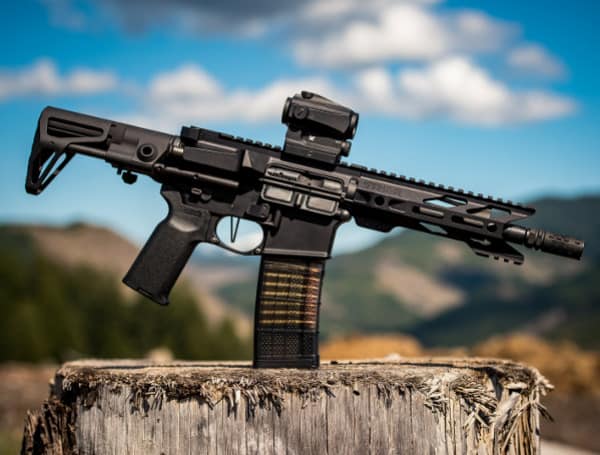The Justice Department (DOJ) Thursday submitted the “Engaged in the Business” Final Rule to the Federal Register, clarifying the conditions under which an individual is “engaged in the business” of dealing in firearms and needs to obtain a federal firearms license.
This includes private sellers and gun shows.
According to the DOJ, the goal of this rule is to increase compliance with the federal background check requirement for firearm sales by federal firearms licensees.
Read: Using Palm Leaves To Spell “HELP” 3 Mariners Rescued By USCG From Small Island
“Under this regulation, it will not matter if guns are sold on the internet, at a gun show, or at a brick-and-mortar store: if you sell guns predominantly to earn a profit, you must be licensed, and you must conduct background checks,” said Attorney General Merrick B. Garland. “This regulation is a historic step in the Justice Department’s fight against gun violence. It will save lives.”
The Bipartisan Safer Communities Act (BSCA), which went into effect on June 25, 2022, broadened the definition of engaging in the business of dealing in firearms to include anyone who devotes time, effort, and attention to dealing in firearms on a regular basis in order to primarily make money through the recurrent acquisition and sale of firearms.
President Biden signed Executive Order 14092 on March 14, 2023.
Among other things, it directs the Attorney General to create and carry out a strategy to clarify who is required to get a federal weapons license because they are involved in the business of dealing in firearms.
The Final Rule defines the activity that presumes a license under the updated definition of BSCA and aligns the ATF regulations with it.
Read: Gun Groups Sound Alarm About New DOJ ‘Red Flag’ Law Center
“The Bipartisan Safer Communities Act enhanced background checks and closed loopholes, including by redefining when a person is ‘engaged in the business’ of dealing in firearms. Today’s rule clarifying application of that definition will save lives by requiring all those in the business of selling guns to get a federal license and run background checks — thus keeping guns out of the hands of violent criminals,” said Deputy Attorney General Lisa Monaco. “I applaud the hard work of ATF in drafting this rule and reviewing the hundreds of thousands of public comments, which overwhelmingly favored the rule announced today. Because of that work, our communities will be safer.”
According to the DOJ, federally licensed firearms dealers are critical to federal, state, local, Tribal, and territorial law enforcement in our shared goal of promoting public safety.
Licensees submit background checks on potential purchasers to the FBI’s National Instant Criminal Background Check System, which helps to keep firearms out of the hands of prohibited persons.
Further, licensees keep records of sales transactions to help ensure that when a gun is used in a crime and recovered by law enforcement, it can be traced back to the first retail purchaser; they help identify and prevent straw purchasers from buying firearms on behalf of prohibited persons and criminals; and they facilitate safe storage of firearms by providing child-safety locks with every transferred handgun and offer customers other secure gun storage options.
Read: Florida Rep. Matt Gaetz Slams Democrats For “Tyrannical” Gun Grab Bill
“Unlicensed dealing, however, undermines these public-safety features — which is why Congress has long prohibited engaging in the business of dealing in firearms without the required license,” wrote the DOJ.
To increase compliance with the statutes Congress has enacted, the Final Rule identifies conduct that is presumed to require a federal firearms license.
In addition to implementing the revised statutory definition discussed above, the Final Rule clarifies the circumstances in which a license is — or is not — required by, among other things, adding a definition of “personal firearms collection” to ensure that genuine hobbyists and collectors may enhance or liquidate their collections without fear of violating the law.
The Final Rule also provides clarity as to what licensees must do with their inventory when they go out of business.
The Final Rule goes into effect 30 days after the date of publication in the Federal Register.
Help support the Tampa Free Press by making any small donation by clicking here.
Android Users, Click To Download The Tampa Free Press App And Never Miss A Story. Follow Us On Facebook and Twitter. Sign up for our free newsletter.

